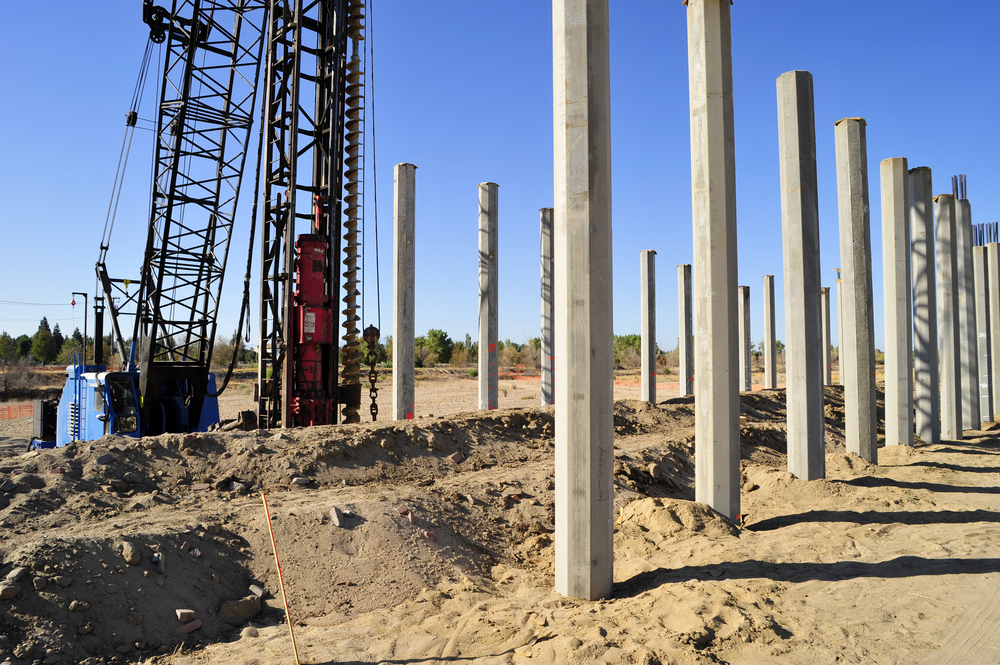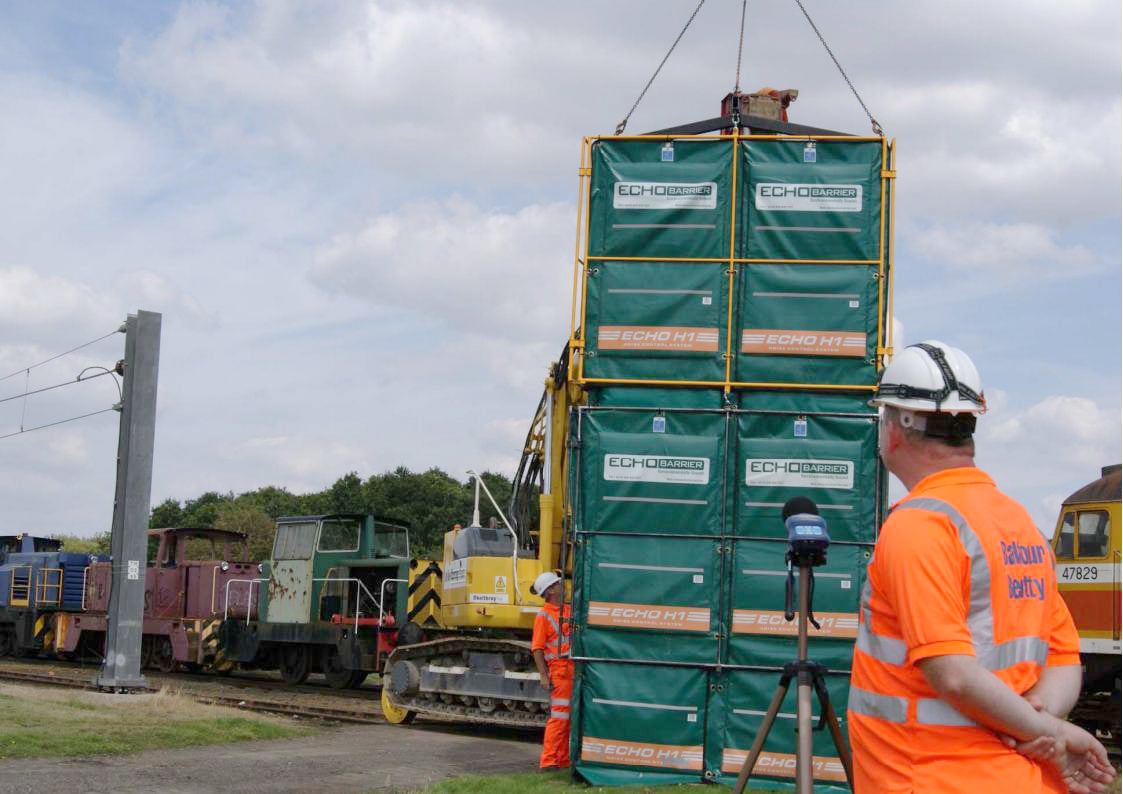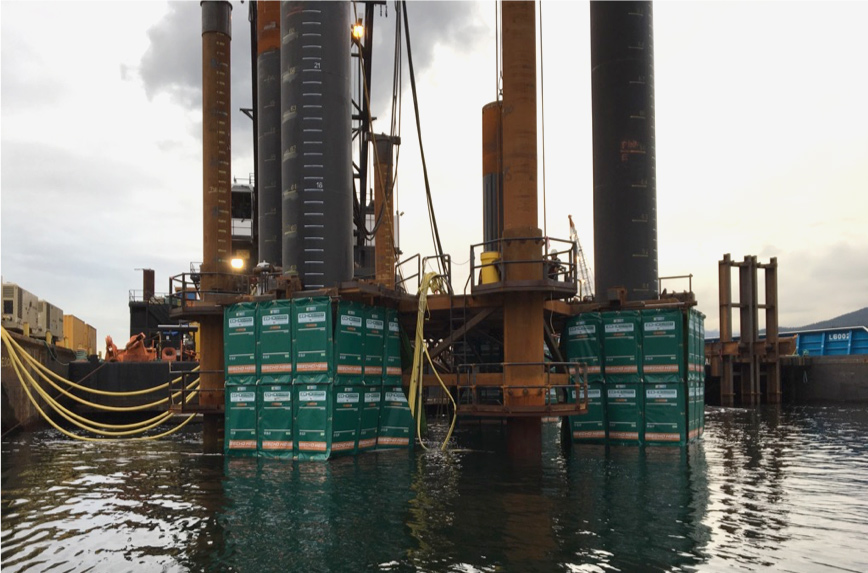
Pile driving is critical to the construction of some of the some of our most important pieces of infrastructure. However, it comes accompanied by a level of noise unrivalled on most worksites. How loud are pile drivers, exactly, and what can be done to reduce the noise level?
What Is A Pile Driver?
Traditional pile drivers are fundamentally giant hammers, and are used to insert large columns, called “piles” into the earth. These form the foundations of most large structures like bridges and tall buildings.

A pile driver works by raising an immense weight (usually between 1,200 and 3,000 pounds) mechanically along the pile driver’s “lead” using either hydraulics, diesel, or steam. Upon reaching the vertical limit, the weight (literally called a “hammer”) is released, bringing it crashing down onto the pile beneath it, driving the pile into the ground at a rate of 40-150 or more “blows” per minute, depending on the type of pile driver. As you can imagine, this isn’t a quiet affair.
How Loud Is A Pile Driver?
Pile driving is one of the noisiest construction activities, reaching almost 120 dB from 10 feet away. Operating at these noise levels near urban areas in particular is a severe issue, and loud pile driving can be the direct reason for civil disruption and noise complaints.
Annoyance stemming from noise exposure is where problems begin to rise, but at such high noise levels, the health implications are even more dire. Monitoring and managing noise levels is vital to ensure the safety of the public and workers onsite.
Control Pile Driving Noise Levels
Controlling the noise as close to the source as possible is the best way to ensure that the impact of the hammer doesn’t ring out so loudly. Echo Barriers are highly portable acoustic barriers with tested and certified durable appropriate for use on construction sites. These barriers can be installed around the pile lead itself, resulting in as much as a 30 dB reduction in noise level.

Keep in mind that that pile driving is not only performed above ground. Very frequently, piles are driven into ground through a body of water, and you may be surprised by how loud it is underwater...
Control Pile Driver Noise Above and Under Water
Sound travels much more efficiently through water than air, so the noise from pile driving activity travels further and remains louder over those distances. In fact, state and local authorities have to also regulate noise levels for underwater construction activities. The noise limit is a whopping 160 dB SEL at almost half a mile from the noise source. This makes pile driving underwater is notoriously harmful for marine life, and contractors are usually required to implement mitigation measures such as bubble curtains to minimize the impact under the water.
Above the water, Echo Barriers can be installed on the pile driver to reduce the amount of noise made by the pile driver's hammer through the air. Echo Barriers are water resistant, so although they cannot be used underwater, they can certainly withstand some contact.


